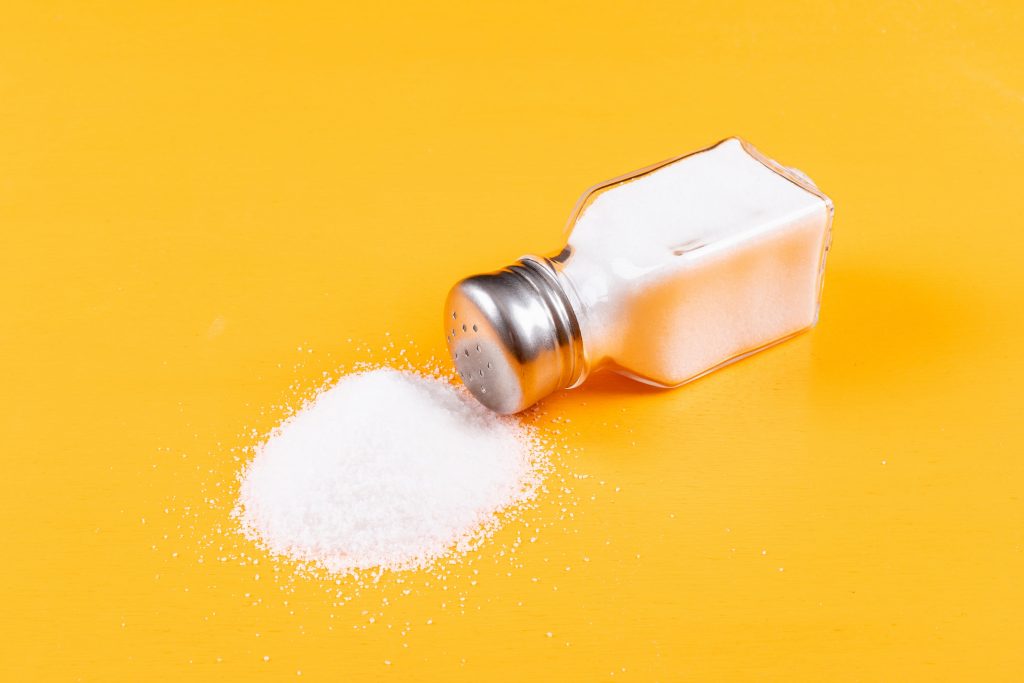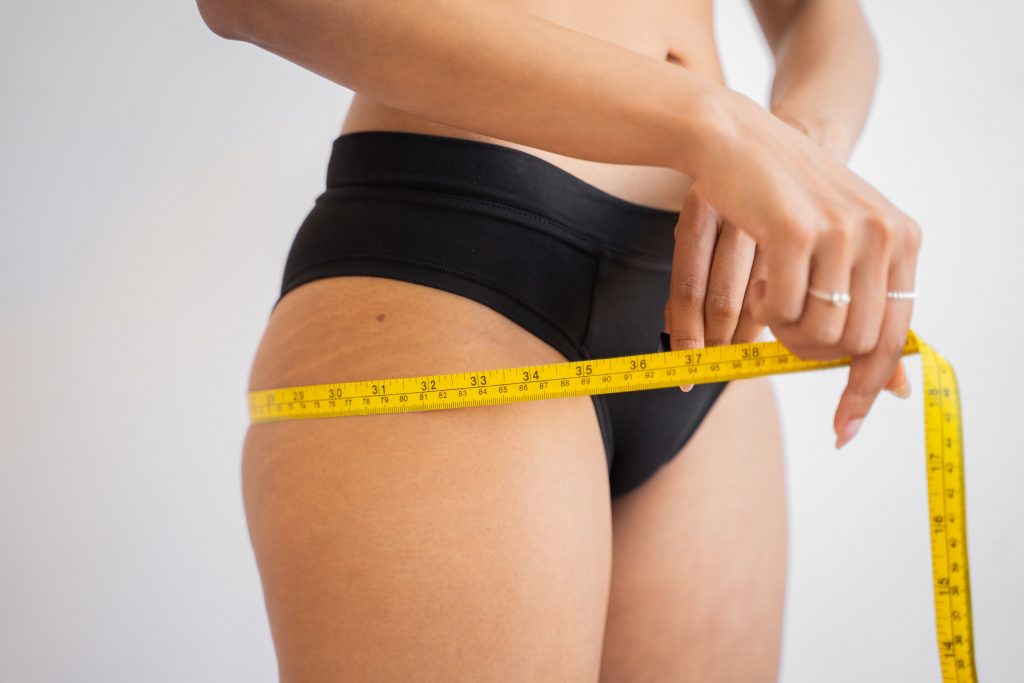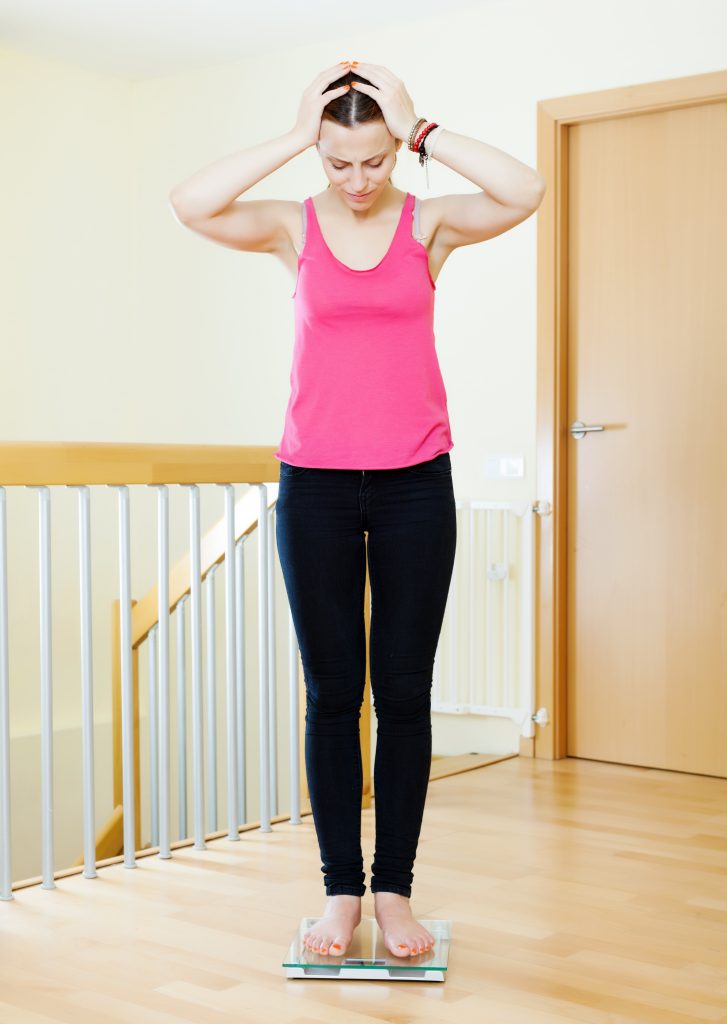It can be frustrating to go on a diet and exercise regularly, but stepping on a scale and seeing no changes in your weight to motivate you to continue your regimen. But things start to feel confusing when, at the same time, your clothes are fitting more loosely. This article is for you if you wonder why you’re losing inches but not weight.
Losing inches but not weight can feel counterintuitive at first. However, understanding the reasons behind this can help you focus on meaningful progress and stay motivated.
Why Losing Inches but Not Weight Happens
The first thing you may want to reconsider is how you assess your health. Your body weight is the total weight of your muscles, bones, organs, fat, water, and food. To stay healthy, your goal should be to lose fat mass rather than muscle mass. Therefore, focusing on total weight may not give you a true picture of your fitness progress.
Another reason weight can be misleading is because of what is called a “weight rhythm.” Your body tends to lose weight during weekdays and gain weight over the weekend. This fluctuation can be as much as 10 pounds, making the scale an unreliable reference point.
It’s also possible to maintain or even gain weight while becoming slimmer. Here’s why.
You May be Losing Fat and Building Muscles at the Same Time

Engaging in a fat loss plan that includes strength training leads to simultaneous muscle gain and fat loss. Muscle tissue is denser than fat, so as you build muscle and lose fat, you may not see a change on the scale, but your body measurements decrease. This recomposition effect is well-documented in fitness research. Muscles are leaner and denser tissues in comparison to fat. Therefore, a pound of fat makes you look bigger than a pound of muscle.
If this is the case, you do not need to change your diet and workout plan. Losing inches but not fat means your body is getting stronger, healthier, AND hotter!
Now that we understand why weight can be misleading, let’s explore the first possible reason: the interplay between fat loss and muscle gain.
Your Bone Density Might be Increasing
Weight training makes your bones denser and stronger, hence heavier. This weight gain is minimal, but combined with the muscle weight, it can be misleading. This also means you are on the right track to a healthier body. In addition to building muscle, strength training also impacts another important aspect of your body: your bones.
It Might be Just Water Weight

-
Our bodies tend to retain water due to factors like high sodium intake, hormonal fluctuations, certain medications, or elevated stress levels. Research indicates that reducing sodium consumption and increasing potassium intake can help mitigate water retention. Water retention can add up to 5 pounds to your weight. This is temporary, and your body will bounce back to normal once the causing factor is eliminated. Here are some tips to reduce water retention in the body.
Eat less salt - Get more magnesium from foods like nuts, whole grains, dark chocolate, and leafy green vegetables.
- Increase your vitamin B6 intake by eating bananas, potatoes, chickpeas, walnuts, and tuna.
- Foods rich in potassium, like bananas, oranges, avocados, and tomatoes, help reduce water retention.
- Eat less refined carbs like white bread and pasta, and substitute them with whole grains.
- Walk and exercise more.
Whatever you do, do not lower your water intake. Your body needs enough water to maintain health and burn fat. Sometimes, what you see on the scale isn’t about fat or muscle—it’s about water. Let’s dive into how water retention can affect your weight.
You May Be Going Through Hormonal Changes

A weight-loss journey has ups and downs, especially for women, due to hormonal changes during the menstrual cycle. Studies suggest that these fluctuations can lead to temporary weight gain, primarily from water retention. You can weigh yourself during the same week of your menstrual cycle every month for more accurate results. Apart from physical factors, your hormonal cycle can also play a significant role in how your body retains or loses weight.
Your Body May Be Suffering From Chronic Inflammation

-
Chronic inflammation, triggered by factors like stress, poor sleep, certain medications, environmental pollutants, allergies, food intolerances, and diets high in refined carbs, gluten, sugar, and processed foods, is linked to obesity. Research highlights that adopting an anti-inflammatory diet rich in fresh vegetables, fruits, olive oil, and omega-3 fatty acids can help reduce inflammation. Chronic inflammation is one of the main reasons for obesity, as well as digestive system problems such as bloating, constipation, diarrhea, and stomachache. Here are some simple tips to protect your body from inflammation.
Cut back on inflammatory foods like trans fats, refined sugar, and processed foods. A healthy and balanced diet is crucial here. - Eat more anti-inflammatory foods like fresh vegetables, fruits, olive oil, spices such as ginger and turmeric, and food containing omega-3s such as salmon, tuna, and walnuts.
- Exercise regularly.
- Manage your stress. Doing yoga and meditation is helpful. If you suffer from chronic stress, you might need to see a psychologist or psychiatrist.
- Know the foods you are allergic to or intolerant to.
You May Have to Make Your Diet and Exercises More Intense
If you are on a calorie-deficient diet for a long time, your body might adapt to the diet and slow down your metabolism. This means you have hit a weight loss plateau in your weight loss journey. While this is absolutely normal, you can lower your calorie intake or rev up your workout if you want to keep losing weight.
Use this bodyweight planner to better plan your weight loss process without muscle loss, lowered energy levels, or health damage. Sometimes, despite your best efforts, your progress stalls. This could be a sign that it’s time to adjust your diet or exercise routine to overcome a plateau.
You May Be Suffering From Hyperthyroidism

If none of the methods above work, you might be suffering from Hyperthyroidism, meaning your thyroid gland is overactive. You can gain up to 30 pounds due to this condition, most of which is water weight. You should consult a doctor since it is not an easy condition to diagnose. If all other factors have been ruled out, it’s worth considering whether an underlying medical condition like Hyperthyroidism is affecting your progress.
What Should I Measure When Trying to Lose Weight?

Knowing that weight is not such a reliable reference might be unsettling, but there are better measurements that can give you a more thorough knowledge of your health. Here they are:
Body Composition
What truly matters is your body composition—the ratio of bone, muscle, and fat. Two individuals may weigh the same but have different body compositions, affecting their health differently. Utilizing tools like bioelectrical impedance scales can provide insights into your body composition, offering a clearer picture of your fitness progress.
If you want to have a better insight into your body composition, it’s time to swap your regular scale for a bioelectrical impedance scale. A bioelectrical impedance scale can estimate your body composition and the percentage of your fat mass and muscle mass by sending a weak electric current through your body.
While body composition is a good reference, you should take into consideration that it can be affected by factors such as age, hormones, genetics, and sex. If you don’t get enough exercise, your body will lose muscle as you age. Men usually have less body fat due to testosterone. Your inherited body type might have more fat than others. One of the best ways to track your progress is by understanding your body composition—a far better indicator of fitness than weight alone.
Body Fat Mass
You can also use an online body fat calculator to determine your body fat mass. These calculators ask you to enter some measurements of your body parts and estimate your body fat percentage. This includes the essential fat your body needs to maintain health and the stored fat reserved in your adipose tissue. The table below can serve as a reference for body fat percentages for men and women.
| Description | Men | Women |
| Essential fat | 2-5% | 10-13% |
| Athletic | 6-13% | 14-20% |
| Fit | 14-17% | 21-24% |
| Average | 18-24% | 25-31% |
| obese | 25%+ | 32%+ |
The Role of Genetics in Weight Loss
Genetics plays a significant role in how your body stores fat, burns calories and responds to diet and exercise. For instance, some people are genetically predisposed to store fat in specific areas, have slower metabolisms, or feel hungrier due to hormonal differences. These factors can influence the speed and ease of weight loss.
What You Can Do
While you can’t change your genetics, you can work with them:
- Customize Your Approach: Tailor your workouts and diet to what works best for your body, focusing on either strength training, cardio, or a mix of both based on your preferences and results.
- Prioritize Consistency: Genetics may affect the pace of progress, but persistence always wins in the long run.
Seek Expert Advice: Consulting a trainer or dietitian can help you optimize your weight loss strategy based on your unique needs.
Body Measurements
The real reason we diet and exercise – apart from being healthy- is to drop size and look thinner. So, instead of relying only on the scale, measure yourself weekly. Stand up straight with your feet together and your weight balanced on both feet. Use a plastic tape measure and measure your chest, waist, hips, thighs, and arms. Write the numbers down to keep a record of your improvement.
You can also take weekly photos to see how your body is changing as you go on. Take the pictures in the morning before breakfast, in the same place, and at the same distance. For those who are more visually motivated, regular body measurements and photos can help capture changes that the scale might miss.
Final tips
Always weigh yourself after your morning bowel movement and before breakfast to get a more reliable scale weight. Instead of worrying about weight, focus on your health. Make sure to develop healthy eating habits and do a combination of aerobic and circuit resistance workouts regularly to maintain a healthy body.
If you find yourself obsessing about being overweight too much, you might want to stop weighing yourself for a while to prevent unhealthy obsessions. Use technology to your advantage. Many apps and gadgets can help you track and monitor your food intake, water intake, exercise, burn calories, heart rate, blood pressure, etc. The more insight you have into your health facts, the easier you can follow your weight loss goals. Have a food diary to make sure you count every calorie you are eating.


